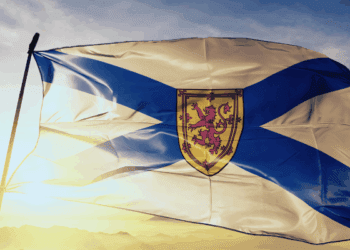 Europe’s stance against genetically modified foods flies in the face of scientific inquiry, writes Brian Lee Crowley, Managing Director of the Macdonald-Laurier Institute, in the Globe and Mail.
Europe’s stance against genetically modified foods flies in the face of scientific inquiry, writes Brian Lee Crowley, Managing Director of the Macdonald-Laurier Institute, in the Globe and Mail.
By Brian Lee Crowley, Oct. 30, 2015
The world faces a crisis of major proportions of humanity’s making and only wise and courageous policymakers guided by the world’s best scientists can save us from our own self-destructive behaviour.
If this sounds like the lead-up to an argument about climate change and the forthcoming Paris conference, be reassured. This is instead an argument about why we should not allow the scientifically illiterate to obstruct the widespread use of genetically-modified plants in solving the problem of how to feed humanity’s teeming billions.
Back in the 1960s there was despair about the planet’s ability to grow enough food to feed the earth’s population. The solution turned out to be the application of science to agriculture and especially the Green Revolution that bred new generations of plants that could produce more in less favourable conditions than ever before.
Unfortunately the huge productivity growth engendered by the Green Revolution’s plant breeding is now tailing off; we have harvested most of the big gains. But the world’s population continues to rise and we can confidently expect (barring major war or pandemic) a world population of over 9 billion by 2050, a number far beyond the ability of current agricultural productivity to support.
Yet the technology that would allow us to get there, the manipulation of plant genes, is already widely available and has proven its mettle. Yet the same people who so earnestly enjoin us to follow the science and make major changes in the way we live in order to control climate change, such as the European Union, suddenly find scientific rigour inconvenient in the face of their irrational dislike of science applied to the world’s food supply.
While the evidence of harm from GMOs is essentially non-existent, its demonstrable benefits are legion.
On the science the views of the American Medical Association are quite representative of the scientific community’s work: “Bioengineered foods have been consumed for close to 20 years, and during that time, no overt consequences on human health have been reported and/or substantiated in the peer-reviewed literature.” Similar conclusions are reported by the World Food Organisation. Canada’s own David Suzuki is a prominent critic of GMOs, but when he raised his objections before an audience composed of experts on the topic, the questioning he faced quickly revealed that his opposition owed far more to ignorance than to expertise.
The claim that GMO feed was causing death, disease and malformation in livestock was recently debunked by a massive study in the Journal of Animal Science. The authors looked at the data covering 100 billion animals over a 29 year period. The conclusion, according to science journalist John Entine? “That GM feed is safe and nutritionally equivalent to non-GMO feed. There was no indication of any unusual trends in the health of animals since 1996 when GMO crops were first harvested.”
So while the evidence of harm from GMOs is essentially non-existent, its demonstrable benefits are legion. It improves crop yields and lowers prices. Because the plants can be bred to be pest and weed resistant, farmers spend less time generating greenhouse gases spraying pesticide and herbicide on their fields. And the health of people around the world can be massively improved by inserting into widely available foodstuffs therapeutic agents, as is the case with golden rice, which is easily converted by the body into vitamin A.
The European Union nevertheless insists on banning the use of GMOs within its borders and bans their import except in the form of animal feed.
Why should the rest of us care about the EU’s food Luddism? Canada forgoes European markets for many of its foodstuffs because we are one of the world’s most successful users of GM technology. No doubt we should press our European trading partners to stop using phony health concerns to keep out our products. But we suffer far less than, say, Africa from Europe’s policy.
Africa imports roughly 83 percent of the food it consumes, according to Harvard’s Calestous Juma, author of a new book on agricultural innovation in Africa. Yet he argues that Africa could be self-sufficient in food within a generation if, among other things, Europe didn’t insist on policies, like the GM ban, that prevent Africa from using all the technological tools at its disposal to raise food output.
Europe is quick to lecture us on climate change. Perhaps it is time to return the favour on the more immediate challenge of making sure humanity has enough to eat.
Juma cites just two crops (bananas and black-eyed peas) where available GM techniques could reduce losses by roughly $800m annually in Africa. Yet the blanket EU ban on GM foods means that Africans fear losing their major export markets if they use these new technologies.
Even worse, a GM-based experimental drug that is promising in the treatment of the deadly Ebola virus is under threat from the ban. As Juma laments, “In this case, EU policies on food safety may have unintended consequences of suppressing innovation in Africa not only in agriculture, but also in healthcare.”
Europe is quick to lecture us on climate change. Perhaps it is time to return the favour on the more immediate challenge of making sure humanity has enough to eat.
Brian Lee Crowley (twitter.com/brianleecrowley) is the Managing Director of the Macdonald-Laurier Institute, an independent non-partisan public policy think tank in Ottawa: www.macdonaldlaurier.ca.




